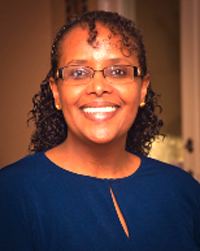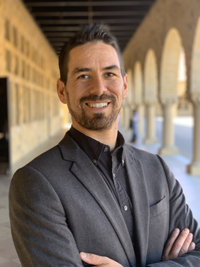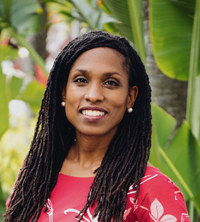Presentations take place at 12 noon via Zoom
January 28, 2021
“First 100 Days”
Join us for a panel of Macalester community members to sum up and analyze what the first 100 days of Biden Administration are likely to bring. In addition to environment and climate issues, we will discuss immigration, health care, education and foreign policy.
February 18, 2021
 “What’s Soil Got to Do With Climate Change”
“What’s Soil Got to Do With Climate Change”
Speaker: Dr. Asmeret Asefaw Berhe, Professor of Soil Biogeochemistry, and Falasco Chair in Earth Sciences at the Department of Life and Environmental Sciences, University of California, Merced
The soil system stores twice as much more carbon than the atmosphere and all of the world’s vegetation combined. Exchange of greenhouse gases between the soil and the atmosphere control composition of the earth’s climate. Over the last two centuries, human actions have increased the flux of greenhouse gases from soil to the atmosphere. Recent studies are highlighting the role of soil management to reverse the increasing concentrations of greenhouses in the atmosphere by implementation of climate smart land management practices. This presentation will include discussion on fundamental mechanisms by which soil system controls the earth’s climate, potential of different land management practices to bend the curve of increasing concentrations of greenhouses gases in the atmosphere; and the urgent need to center soils and equity in efforts to address climate change.
This EnviroThursday is co-sponsored by the Environmental Studies, Biology, and Geology Departments.
March 4, 2021
4:45 p.m
“Restoration and Reciprocity”
Speaker: Robin Wall Kimmerer, author of Braiding Sweetgrass: Indigenous Wisdom, Scientific Knowledge and the Teachings of Plants
Ecological restoration can be understood as an act of reciprocity, in return for the gifts of the earth. This talk explores the ecological and ethical imperatives of healing the damage we have inflicted on our land and waters. We trace the evolution of restoration philosophy and practice and consider how integration of indigenous knowledge can expand our understanding of restoration from the biophysical to the biocultural. Reciprocal restoration includes not only healing the land, but our relationship to land. In healing the land, we are healing ourselves.
This EnviroThursday is co-sponsored by the Environmental Studies; Biology; Women’s, Gender, and Sexuality Studies; and the Department of Multicultural Life.
March 25, 2021
 “Upstream Oil Production, Ambient Air Quality, and Reproductive Health Equity in California”
“Upstream Oil Production, Ambient Air Quality, and Reproductive Health Equity in California”
Speaker: David J.X. Gonzalez, PhD candidate, Emmett Interdisciplinary Program in Environment and Resources at Stanford University
California is among the most productive states for crude oil, and an estimated 2.1 million residents live within 1.6 km (1 mile) of an active well. This talk will cover an interdisciplinary approach to understanding how oil and gas production affects environment, health, and justice in California, using various tools for geospatial analysis. David will discuss results from a recent epidemiological study investigating the association between exposure to oil and gas wells and risk of preterm birth as well as an econometric study on the effects of oil production on ambient air quality.
This EnviroThursday is co-sponsored by the Environmental Studies, Biology, and Community and Global Health Departments.
April 1, 2021
“Farming the Floodplain: Gendered Surplus People and Maladaptation to Climate Change in Northern Ghana”
Speaker: Dr Hanson Nyantakyi-Frompong, Assistant Professor, Department of Geography and the Environment, University of Denver
In 2005, the government of Ghana gave out 316,400 hectares of rural farmlands to a mining company as a concession for gold prospecting and extraction. This mining concession led to the dispossession of pre-existing land use rights held by thousands of farmers across several villages in northwestern Ghana. While most of these farmers became landless, their labor power was not absorbed into mining activities, thus creating a group that Karl Marx has referred to as relative surplus people. Marx specifically classified such a group as a “latent surplus population,” that is, a population whose land is needed, but their labor is not. To fulfill gendered responsibilities in household food provisioning, women who experienced complete land dispossession ended up farming the floodplain of Ghana’s Black Volta River. In this presentation, Nyantakyi-Frimpong examines how these women manage climate risks in a landscape where recurrent flooding presents acute threats to agriculture. Among women farmers, adaptation to flooding typically includes building artificial levees made of household waste, straightening or dredging the river, and altering fields to drain water more quickly. Using evidence from long-term ethnographic fieldwork, Nyantakyi-Frimpong shows how these strategies constitute climate maladaptive outcomes, including rebounding and shifting vulnerability, as well as eroding sustainable development. Nyantakyi-Frimpong argues that for these women, their status as surplus people and the simultaneous need to ensure household food security compel them to pursue flood adaptation measures that heighten vulnerability and generate new risks.
Dr. Hanson Nyantakyi-Frimpong’s teaching and research interests include the political ecology of rural development, the human dimensions of global environmental change, and sustainable agriculture and food systems.
This EnviroThursday is co-sponsored by the Environmental Studies, Geography, and Gender and Sexuality Studies Departments; African Studies, International Development, and Food, Agriculture & Society Programs.
April 15, 2021
 “Root and Branch: Climate Migration, Racial Crises, and the History and Future of Climate Justice”
“Root and Branch: Climate Migration, Racial Crises, and the History and Future of Climate Justice”
Speaker: Maxine Burkett, JD, Professor of Law, William S. Richardson School of Law, University of Hawai‘i at Mānoa
The disproportionate burdens of climate change borne by the Global South are numerous and increasingly well-documented. While the effect of the climate crisis in the South is starting to receive its due coverage in a current moment of heightened awareness, the centuries long relationship between the two also deserves deeper exploration, particularly to ensure that our solutions seek to grasp at the roots of the crisis while it prunes the branches. Indeed, the climate crisis and racial hierarchy have long been inextricably intertwined, explaining in large part the uneven share in cause and consequence of the North and South respectively. With a comprehensive review of the challenges of climate-induced migration, Prof. Burkett will provide a case study in the gaps of international law and illuminate transformative and just approaches to twin crises.
Maxine Burkett is a Global Fellow at the Woodrow Wilson International Center for Scholars. She is also a Co-Founder and Senior Advisor at the non-profit Institute for Climate and Peace. Burkett is an international expert in the law and policy of climate change, with a specific focus on climate justice, climate-induced migration, and climate change, peace, and conflict.
This EnviroThursday is co-sponsored by the Environmental Studies, Sociology, Political Science, and American Studies departments as well as the Sustainability Office and Legal Studies concentration.